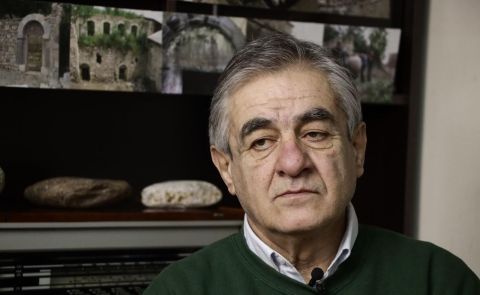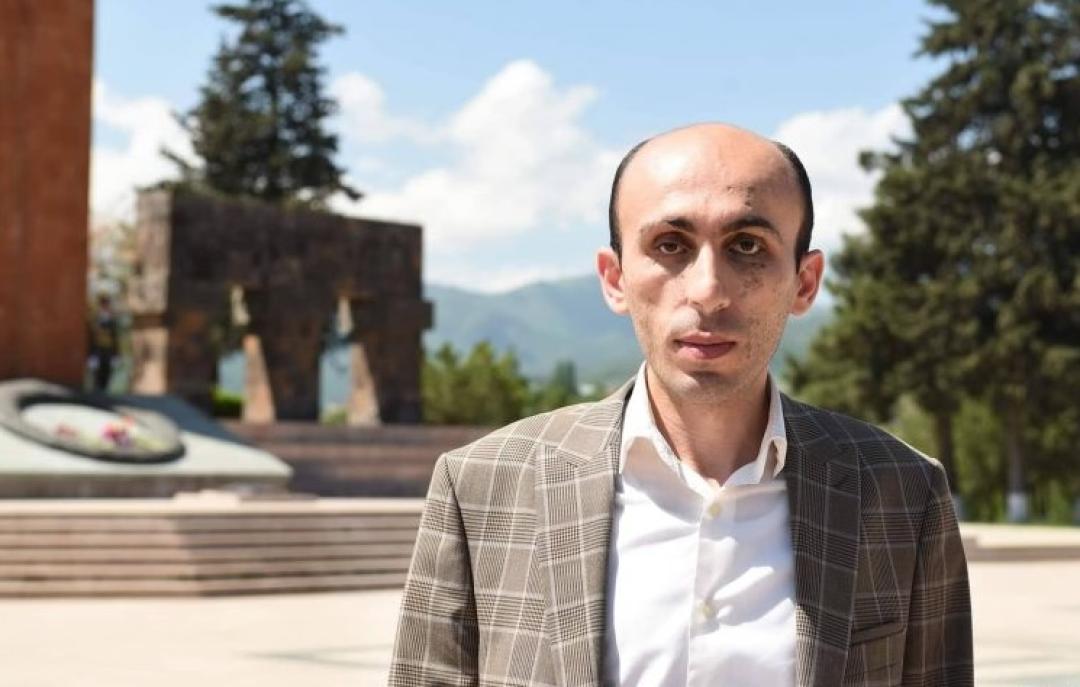
Artak Beglaryan: The best option for the Karabakh Government is Armenia

For weeks there have been speculations that the self-proclaimed Republic Nagorno-Karabakh would not disband, as expected on January 1, 2024.
Leaders of the Armenian Diaspora have been speculating on the relocation of the self-proclaimed Republic of Artsakh, citing a number of cities where the last government with a popular mandate might relocate.
Historically, the self-proclaimed Republic of Artsakh was not internationally recognised. Therefore, its international representatives had to operate with the financial and diplomatic support of Armenia. Azerbaijan sent troops to Karabakh on September 19, 2023. After months of a blockade that had caused disruptions in food and energy supplies, authorities in Stepanakert were forced into accepting reintegration into Azerbaijan. On September 28, separatist president Samvel Shahramanyan issued a decree ordering the dissolution of the self-proclaimed Republic by January 1, 2024.
That decision has now been revoked. On December 22, Shahramanyan revoked his own decree. The response of the government of Armenia has been quite negative. Yerevan sees the intention to retain a government in exile as a direct threat to national security.
To examine what happens next, we spoke to Artak Beglaryan. At the age of six, Artak Beglaryan was blinded by a landmine explosion outside his family’s home. He went on to study at the Fletcher School of Law and Diplomacy at Tufts University and at University College London. He went on to serve as State Minister and Human Rights Ombudsman of the self-proclaimed Republic of Nagorno Karabakh. He is widely expected to play a role in whatever happens next.
Over 100,000 people of the Armenian community in Karabakh have left their homes, among them yourself. To what extend this community remains intact? What happens to their data: birth certificates, land and property titles?
Since here, in Armenia, we do not live as a geographically compact group, it is hard to remain a community. On the other hand, we have institutions that are vital in maintaining a sense of community, both state institutions and civic, cultural, and educational foundations that are important. There are also social media platforms – pages, groups, channels – that make communication easier.
Now, the main challenge is holding on to state institutions, important both in maintaining our community but also continuing the struggle to defend our rights and interests of our people. You understand of course that we have several challenges in that respect, not least with the Armenian authorities.
I guess we will have a natural process of founding new institutions and organisations that will help the people hold onto their identity, community, and rights. At this moment, there is a tendency among our people to be active: holding events, debates on the future of the community, etc.
As regards to the main state-owned databases, there have been transferred to Armenia, at least those that were in electronic form: property, identification documents, the residential registry, civil registration (marriage, birth, death, etc.). The electronic data is in Armenia. There are some difficulties for old archives that date back prior to 2012. Part of these hard copy documents are hard to retrieve or restore but this is not a serious problem.
There are eight members of the government of the self-proclaimed Republic of Nagorno-Karabakh in Baku. Following the recent confidence-building measures between Armenia and Azerbaijan that included the exchange of certain detainees, is there any hope of their release? Is there any diplomatic initiative in that direction?
We have uncertainty in that regard. They keep contact with their families, regularly, on the phone. The Red Cross has visited them. There is less knowledge about the legal process. The investigation procedure followed by the prosecution building the case against them, the kind of documentation reaching the courts is not transparent.
There are foreign politicians and diplomats reaching out to the Azerbaijani side but little by way of progress. I know that Armenian authorities do raise the issue in their communication with the other side, both directly and through mediators. Some of these processes are not public and I am perhaps less informed about them. There are also legal initiatives at the International Court of Justice and the European Court where the Armenian government is making the case for all detainees. It is apparent that Azerbaijan does not want to return the leadership; I can only speculate as to why that is the case.
There are unofficial civic public initiatives to support the cause of their return. I do not see results in that respect. I am quite certain that the resolution of this case should be political and international pressure (on Azerbaijan) should be increased to ensure the return of our leadership.
On December 22, Samvel Shahramanyan, talked about revoking the dissolution of the self-proclaimed Republic of Nagorno-Karabakh on January 1. It was his decree issued in Stepanakert on September 26 that started the countdown to January 1. How was this decision received in Yerevan?
The response (by the Government) was both public and aggressive. It seems the Armenian authorities seriously fear that a decree to annul the dissolution of the state could provide Azerbaijan with a reason for new provocations or even aggression.
I do not know the grounds for these fears: whether they are baseless or substantiated, but I think that Armenian and Nagorno Karabakh authorities should discuss these issues confidentially rather than in public and reach a solution for the sustained operation of Artsakh state institutions now and in the future, beyond January 1.
I can also say there is no legal significance in the September 28 decree and from January 1 state institutions will continue to operate. That is because the decree was unconstitutional, and no President can or could ever sign a decree that dissolves state institutions. On January 1 one should expect all state institutions of Nagorno Karabakh to publicly operate.
However, the solution as regards to avoiding a threat to Armenian national security requires discreet discussions between Armenian authorities and Karabakh authorities. I think the two parties should discuss this confidentially.
When you say that the Nagorno-Karabakh government will continue operations, I am wondering whether that is possible. Evidently, your government does not have tax-raising capacity powers right now. Is there any indication Armenia will lend its support?
No, apparently, they don’t support the notion of that the state of Artsakh and its institutions should continue to operate. In fact, they do not want to see any of the institutions continuing to operate in Armenia.
That is the wrong approach and I think they can find a solution. This is not something that turns against Azerbaijani sovereignty but our collective rights. These authorities are the legal and legitimate representatives of our people and have the right and the power to represent their interests and rights. This should happen for sure with the support of Armenian authorities. Whenever possible, they should do what is possible in terms of foreign affairs, raising our voice worldwide. Unfortunately, we do not see sufficient interest or support by the Armenian authorities.
If Yerevan is not able to support, will you proceed with setting up a government in exile? If so, is there any indication of where that would be based?
Actually, we do not need to set up a new government in exile because there is an existing government. The existing government can simply restructure and reorganise its structure, mission, and functions and continue its operations.
The best option would be to have such a government in Armenia. If the Armenian authorities oppose this idea or even try to hinder it, then the authorities of Artsakh will have to find a solution, seeking a location elsewhere. There are scenarios being discussed, but this prospect has its limitation, will create dependence and that is why I cannot directly answer your question. Much depends on the conditions different authorities will put forward to our government.
Contributed by Ilya Roubanis
See Also


Irina Mamulashvili: Electoral Interference is a Playbook, not a Recipe

Giorgi Gakharia: The EU Should Engage Georgia Despite Its Democratic Backsliding

Peace or Capitulation? Shahverdyan on Armenia-Azerbaijan Agreement and the Nagorno-Karabakh Crisis

Ali Mousavi Khalkhali: Iran Will Avoid Conflict in the Caucasus

